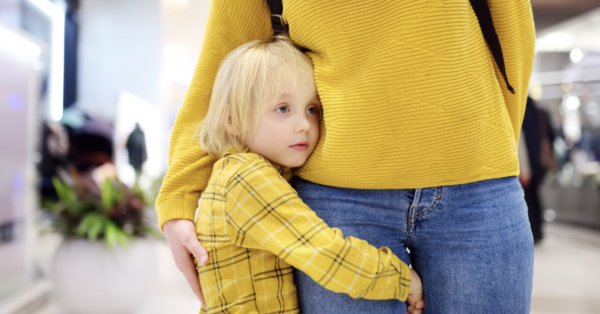
Jenna Farrelly
21 Dec 2023
“Mamaaaa! Nooo!!” I would hear every time I dropped my son off at nursery and walked away. It was gut wrenching. I felt horrendously guilty leaving him. I felt that I was doing something wrong, or that there was something wrong with him for feeling this way. I still remember him desperately clinging onto me and walking away with tears in my eyes. It was torturous! If only I knew then what I know now.. he would’ve coped better but also so would I. It wouldn’t have taken away his emotions, but it would’ve made the whole phase a lot easier for us both.
So what is Separation Anxiety? Why does it happen and what can you do to support your toddler?
Separation Anxiety can begin around 8 months of age and can continue for a few years. It’s a positive sign of something called a secure attachment (a positive and secure relationship with a caregiver). A secure attachment is vital for stable emotional wellbeing as a child develops; so, first of all, remove any guilt or worry that there is something wrong with your toddler or you. It is a normal phase of development and should subside over time. You may find with some children, they still have a few tears leaving you even as they are getting older, but as long as it’s not causing significant distress or disruption to school/their development or mental wellbeing then it is appropriate for them to feel a little sad when being separated from you. If you want to learn more about developing a secure attachment with your child- ‘The Power of Showing Up’ by Dr Dan Siegel and Dr Tanya Payne, is a wonderfully helpful book for parents.
Symptoms of separation anxiety in toddlers:
- Excessive crying when you try to leave them with someone else
- Clinging to you in new environments
- Not letting you out of their sight
- Refusing to go anywhere without you
- Struggling to sleep alone
My top tips for helping your toddler with separation anxiety:
Practice separations
Start small- peekaboo is a great way of teaching your baby that you can disappear and then return. Once they’ve learnt this, you could trial some separations. Start in your own home- get someone to come round for 15-30 mins and leave them with them. Slowly build up the time you leave them for and change the place, such as leaving them at a relative’s house or the park. If the first time they are ever being left is at a strange place such as nursery- it is likely to make the separation anxiety worse.
Always say bye!
Don’t run away thinking that’s best. It can make them clingier because they can’t predict when you are leaving, so they just want you at all times! Saying bye enthusiastically, giving eye contact, providing reassuring touch and a big smile will comfort them and develop patterns that they can rely on.
Speak about what you will do later
“I can’t wait to see you later; shall we go to the park/Read your favourite book/Play with your toys?” Or discuss what they’ll be doing at nursery/childminder/with relations… “Could you draw me a picture today? I’d love to have a new picture for the fridge!”.
Recognise, respond and relate to the emotion
“I can see you’re feeling scared and worried, it’s ok to feel scared”. Give lots of eye contact and touch because this increases Oxytocin (our bonding hormone) which decreases their Cortisol levels (stress hormone). “I miss you when I’m not with you/I used to cry when I was dropped off too. Let’s have a big cuddle until you’re ready to go in”. You can also add things like “Isn’t it lovely that we love each other so much we miss each other when we’re not together? We are lucky”. This puts a positive spin on the sadness/fear.
Regulate your own emotions
Take 5 long deep breaths to regulate your physiological system so they can sense you are calm. Children pick up on our own emotions, I’m not saying you’re not allowed to feel however you are feeling- but if you can try to regulate yourself first, they are more likely to mimic what you are showing. If you are having issues with regulating your own emotions, it may be worth discussing this with someone- a friend, your partner or a GP if things aren’t settling for yourself.
Make a big fuss when you return
Make a big fuss when you return
Give huge smiles and waves, congratulate them for being brave and talk about both of your emotions openly. “I really missed you, but I am so proud that even though you were scared, you still stayed and enjoyed your time without me”.
Most toddlers do outgrow separation anxiety, but if you are worried that their behaviour/symptoms aren’t easing, you can contact the health visiting team or your GP. Separation anxiety can sometimes develop into something called Separation Anxiety Disorder which is a more extreme form of what has been discussed- signs that you may need further support include prolonged and excessive crying, bad nightmares or worries that a parent will die, physical symptoms such as sickness/headaches when the parent leaves and refusal to go to school.

Jenna Farrelly
Share this article

